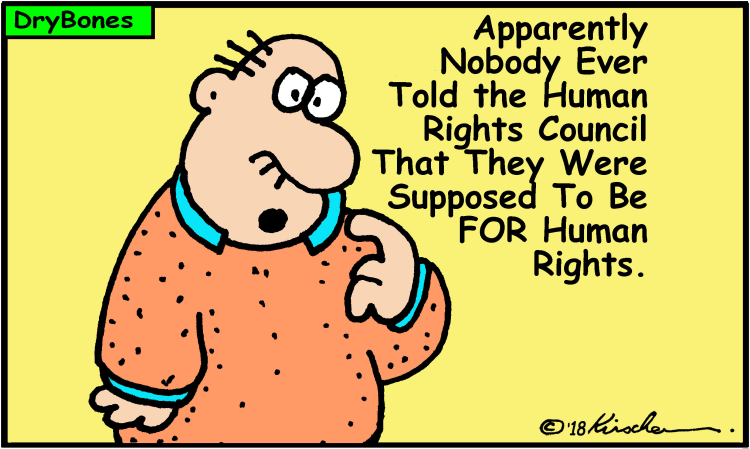Problem-solver Jared Kushner’s biggest win was Middle East peace
Of all the problems President Trump threw at senior adviser Jared Kushner, developing a peace plan for the Middle East was the toughest, a win that has eluded administrations for years.FDD: Occupied Territories Bill in Ireland Is Dead on Arrival
For the Jewish adviser, bringing peace to Israel was personal. And any victory would provide the administration with an everlasting legacy in the region and the world.
He ignored the ridicule of former administration officials when he took a different and secretive path, as he had on several other projects.
“If you look up the definition of an impossible objective in the dictionary, people say Middle East peace. It's almost a metaphor for impossibility,” he told Secrets.
Kushner built a plan that had a big economic and prosperity push, and while many in Washington brushed it off, it has taken root in the region.
And it set the stage for the Abraham Accords, which has led four former foes — the United Arab Emirates, Bahrain, Sudan, and Morocco — to sign peace agreements with Israel.
“We took a very different approach, and this isn't a rebuke of Democrats, it's a rebuke of maybe more of the foreign policy people who've come before because they're Republicans and Democrats, and for years, they did this dance and didn't get results. Then, those were the people who criticized me the loudest for doing things differently than the way they did. I was like, 'Wait, so you want me to accomplish a different result than you got, but you want me to do the exact same way that you tried?'” he said.
Joel Rosenberg, a bestselling author, editor of All Israel News and All Arab News, and a roving diplomat, called Kushner one of “the most innovative and successful Middle East peace brokers in history.”
Amid a COVID-19-induced economic recession, Irish independent Senator Frances Black has revived a draft law targeting Israel after a previous failed attempt. The Occupied Territories Bill, if enacted, could have disastrous consequences for U.S. economic relations with Ireland – and Ireland itself.Obama trafficked in anti-Semitic tropes — lefty media didn't notice
The Occupied Territories Bill seeks to criminalize trade in goods and services produced in Israeli settlements. When the bill was initially introduced in January 2018, it triggered a sharp denouncement from the Irish government and U.S. policymakers.
During the 32nd session of the Irish parliament, which was dissolved in January 2020, the bill reached the seventh of 10 steps toward becoming law. Unpassed bills typically lapse at the end of Ireland’s parliamentary session and must begin the process anew in the subsequent session. However, Black succeeded in now having the bill reinstated at the same stage during the 33rd session.
If enacted, the bill could force U.S. companies with an Irish division or subsidiary to choose between one of two costly options: violate Irish law by continuing to do business with companies and persons in Israeli settlements, or violate U.S. law by participating in a foreign boycott not endorsed by the U.S. government. Major U.S. companies, including Apple, Google, Microsoft, and Facebook, employ over 155,000 people in Ireland. All four of these corporations have substantial research and development centers in Israel. Not only would these and other U.S. companies risk running afoul of U.S. federal law prohibiting compliance with an unsanctioned boycott, they would also be violating nearly two dozen U.S. state laws that prohibit unauthorized boycotts against Israel.
The bill has already received sharp criticism from officials of Ireland’s two leading political parties, as well as bipartisan criticism from the U.S. Congress. Earlier this year, Irish Prime Minister Micheal Martin of Ireland’s Fianna Fail party asserted that the bill would violate EU trade regulations by undermining the European Union’s exclusive right to determine trade policy for its member states.
Irish Foreign Minister Simon Coveney of the Fine Gael party has made similar assertions. In addition, Irish Attorney General Séamus Woulfe weighed in that the bill would be “impractical” to enforce.
The words leap out and grab you. Former President Barack Obama characterizes no other world leader in anything like the terms he reserves for former French President Nicolas Sarkozy.
In his recent memoir, Obama tells us that Sarkozy is a “quarter Greek Jew.” Little wonder, then, that Sarkozy has “dark, expressive, Mediterranean features,” which resemble the exaggerated, often distorted figures “of a Toulouse-Lautrec painting.”
Little wonder, too, that he is “all emotional outbursts and overblown rhetoric,” while his conversation, which reflects unbridled ambition and incessant pushiness, “swoops from flattery to bluster to genuine insight.”
One might have thought Obama was deliberately directing at Sarkozy the insults notoriously hurled at Benjamin Disraeli (1804-1881), the first person of Jewish birth to become Britain’s prime minister. The colonial administrator Lord Cromer said of Disraeli that he was driven by “a tenacity of purpose” that was “a Jewish characteristic.” With his swarthy, “Oriental features,” Disraeli was consumed by an “addiction” to the “passionate outbursts” and “excesses of flattery” that were the hallmarks of his “nimble-witted” race.
Cromer’s taunts, which Obama so uncannily echoes, were hardly unusual. On the contrary, the traits Obama attributes to Sarkozy — from oily complexion to pushy, self-centered assertiveness — were at the heart of the anti-Semitic caricature of the Jew that crystallized, with murderous consequences, in the 19th century.
That history makes calling Sarkozy a Jew vastly different from noting, say, that Angela Merkel’s father was a Lutheran pastor; and if anti-Semitism involves using the label “Jew” to evoke, emphasize or explain an interrelated complex of unattractive attributes, Obama’s description of Sarkozy is unquestionably anti-Semitic.
Yet from The New York Times to The Washington Post and beyond, not one of the gushing reviews considered Obama’s statement even worth mentioning.

















 Tel Aviv, December 17 - Observers expecting something original out of the ongoing Israeli political morass voiced their disapproval this week over yet another predictable twist in the narrative, noting that talk of an eleventh-hour deal to thwart early elections could be spotted months away in the story arc, and that the writers have rested on their laurels of late, relying on hackneyed devices instead of genuine creativity.
Tel Aviv, December 17 - Observers expecting something original out of the ongoing Israeli political morass voiced their disapproval this week over yet another predictable twist in the narrative, noting that talk of an eleventh-hour deal to thwart early elections could be spotted months away in the story arc, and that the writers have rested on their laurels of late, relying on hackneyed devices instead of genuine creativity.



















.jpg)

